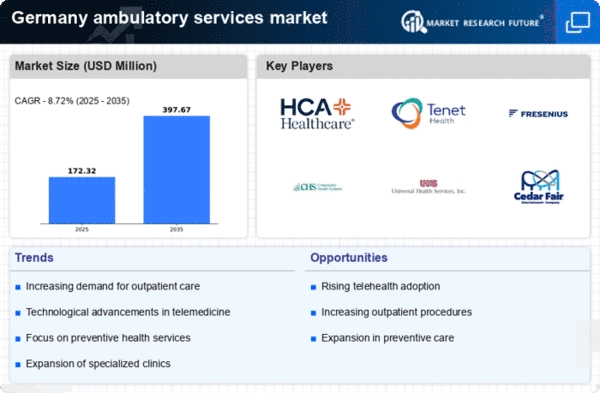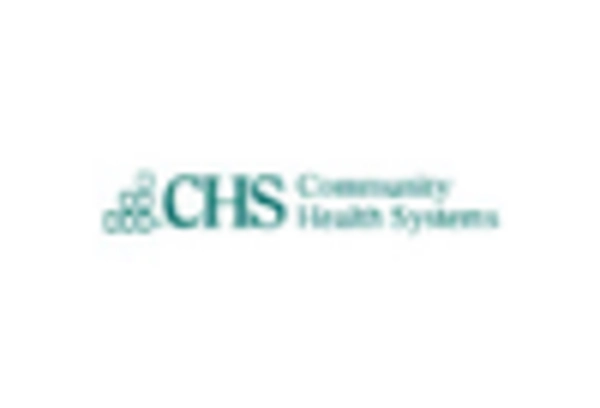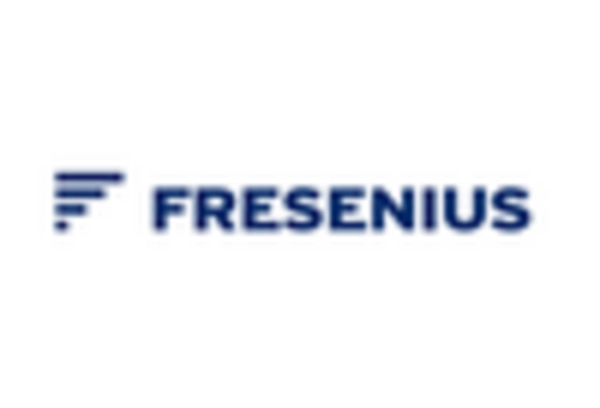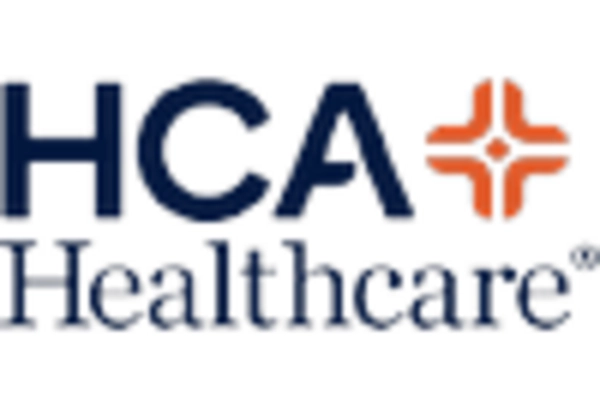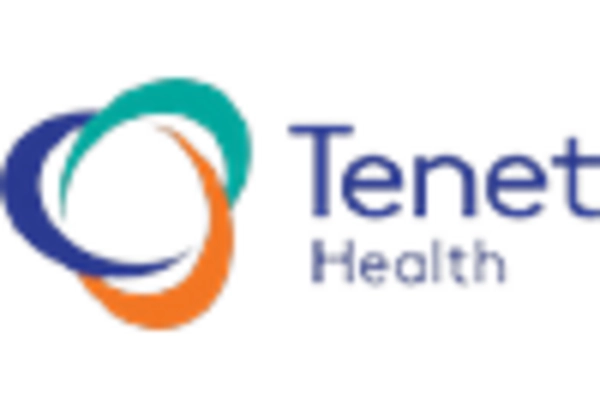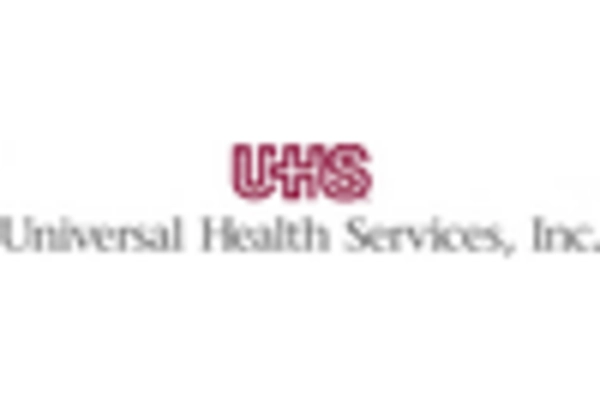Rising Healthcare Expenditure
Rising healthcare expenditure in Germany is a critical driver of the ambulatory services market. Increased investment in healthcare infrastructure and services is facilitating the expansion of outpatient care facilities. According to recent statistics, healthcare spending in Germany is projected to reach €500 billion by 2026, reflecting a commitment to improving healthcare access and quality. This financial support enables healthcare providers to enhance their ambulatory services, invest in new technologies, and expand their service offerings. Moreover, as patients become more aware of their healthcare options, the willingness to seek outpatient care is likely to increase, further propelling the growth of the ambulatory services market. The correlation between healthcare expenditure and service availability underscores the importance of financial resources in shaping the future of ambulatory care.
Increasing Demand for Outpatient Care
The ambulatory services market in Germany is experiencing a notable increase in demand for outpatient care. This trend is driven by a growing preference among patients for receiving treatment in less invasive settings, which often leads to quicker recovery times and reduced hospital stays. According to recent data, outpatient visits have surged by approximately 30% over the past five years, reflecting a shift in patient behavior. This demand is further fueled by the aging population, which requires more frequent medical attention. As a result, healthcare providers are expanding their ambulatory services to accommodate this influx, thereby enhancing the overall capacity of the ambulatory services market. The focus on outpatient care alleviates pressure on hospitals. It also aligns with the broader healthcare strategy of promoting efficient and cost-effective treatment options.
Shift Towards Value-Based Care Models
The shift towards value-based care models is significantly impacting the ambulatory services market in Germany. This approach emphasizes patient outcomes and cost-effectiveness, encouraging healthcare providers to focus on delivering high-quality care while managing expenses. As a result, there is a growing emphasis on preventive care and chronic disease management within the ambulatory services market. Data suggests that healthcare systems adopting value-based care have seen a reduction in hospital readmission rates by up to 20%, indicating improved patient management. This shift not only aligns with patient expectations for personalized care but also incentivizes providers to enhance their service offerings. Consequently, the transition to value-based care is likely to drive innovation and efficiency within the ambulatory services market.
Regulatory Support for Ambulatory Care
Regulatory support is increasingly influencing the ambulatory services market in Germany. The government has implemented policies aimed at promoting outpatient care, which includes financial incentives for healthcare providers to expand their ambulatory services. Recent reforms have focused on reducing bureaucratic barriers, thereby facilitating easier access to outpatient care for patients. This regulatory environment encourages innovation and investment in the ambulatory services market, as providers are more willing to adopt new models of care. Furthermore, the emphasis on quality and patient safety in regulatory frameworks is likely to enhance the credibility and attractiveness of ambulatory services, potentially leading to a higher patient uptake. As a result, the regulatory landscape is a crucial driver of growth in the ambulatory services market.
Technological Advancements in Medical Equipment
Technological advancements are playing a pivotal role in shaping the ambulatory services market in Germany. Innovations in medical equipment, such as portable diagnostic tools and telemedicine platforms, are enhancing the efficiency and effectiveness of outpatient care. For instance, the integration of advanced imaging technologies and minimally invasive surgical instruments has improved patient outcomes and reduced recovery times. The market for medical devices in Germany is projected to grow at a CAGR of 5% over the next five years, indicating a robust investment in technology that supports ambulatory services. These advancements not only facilitate better patient management but also enable healthcare providers to offer a wider range of services in outpatient settings, thereby expanding the scope of the ambulatory services market.


